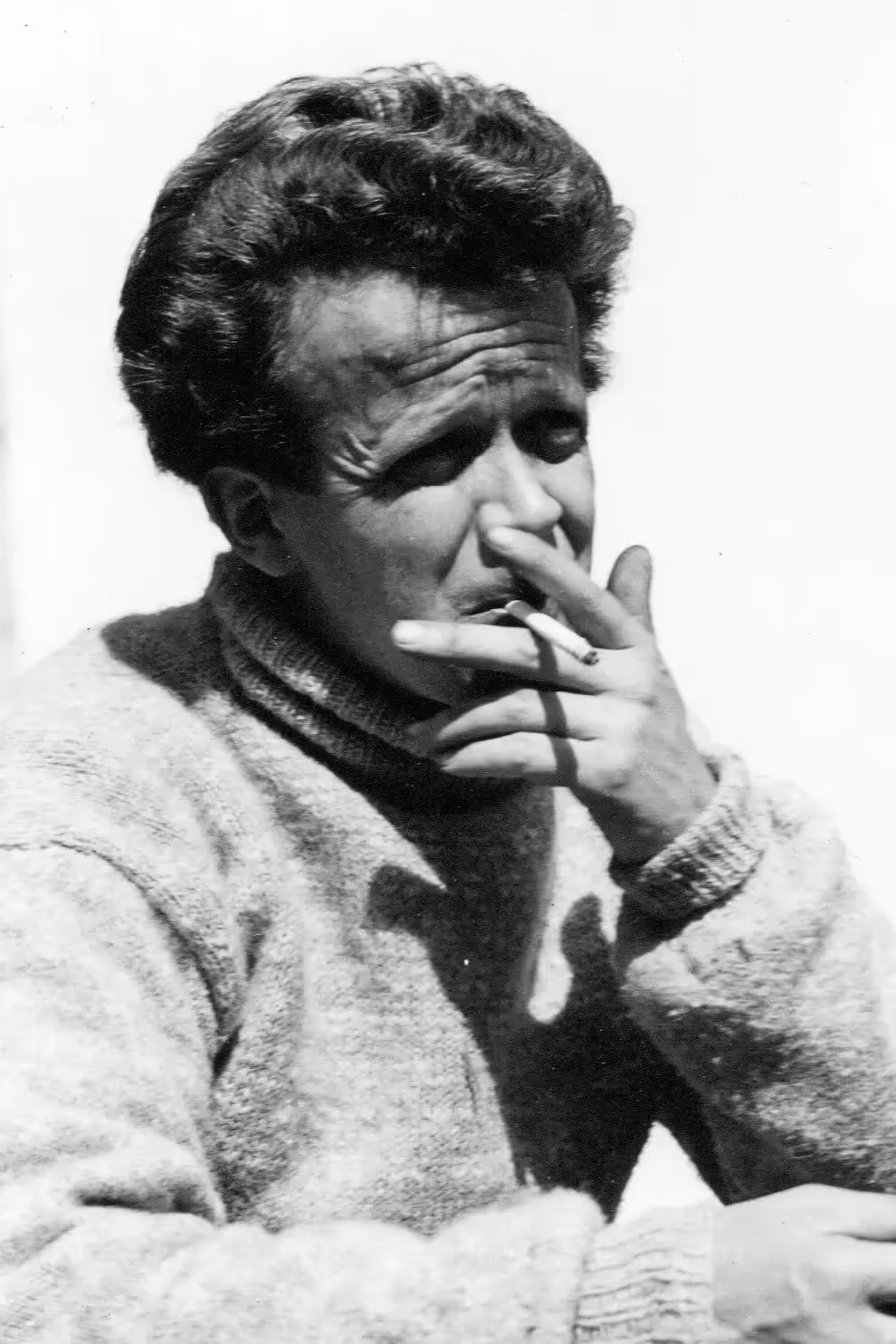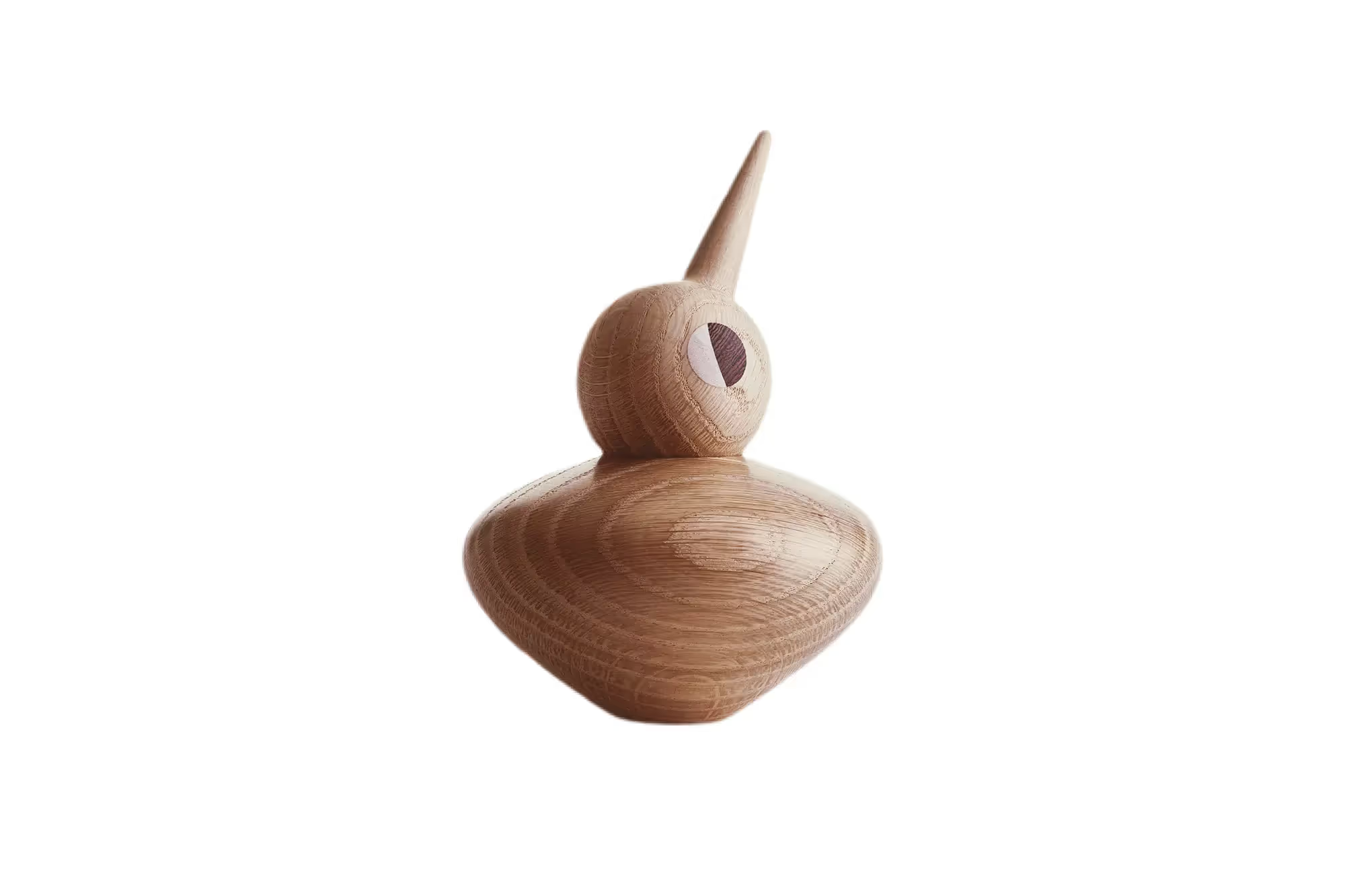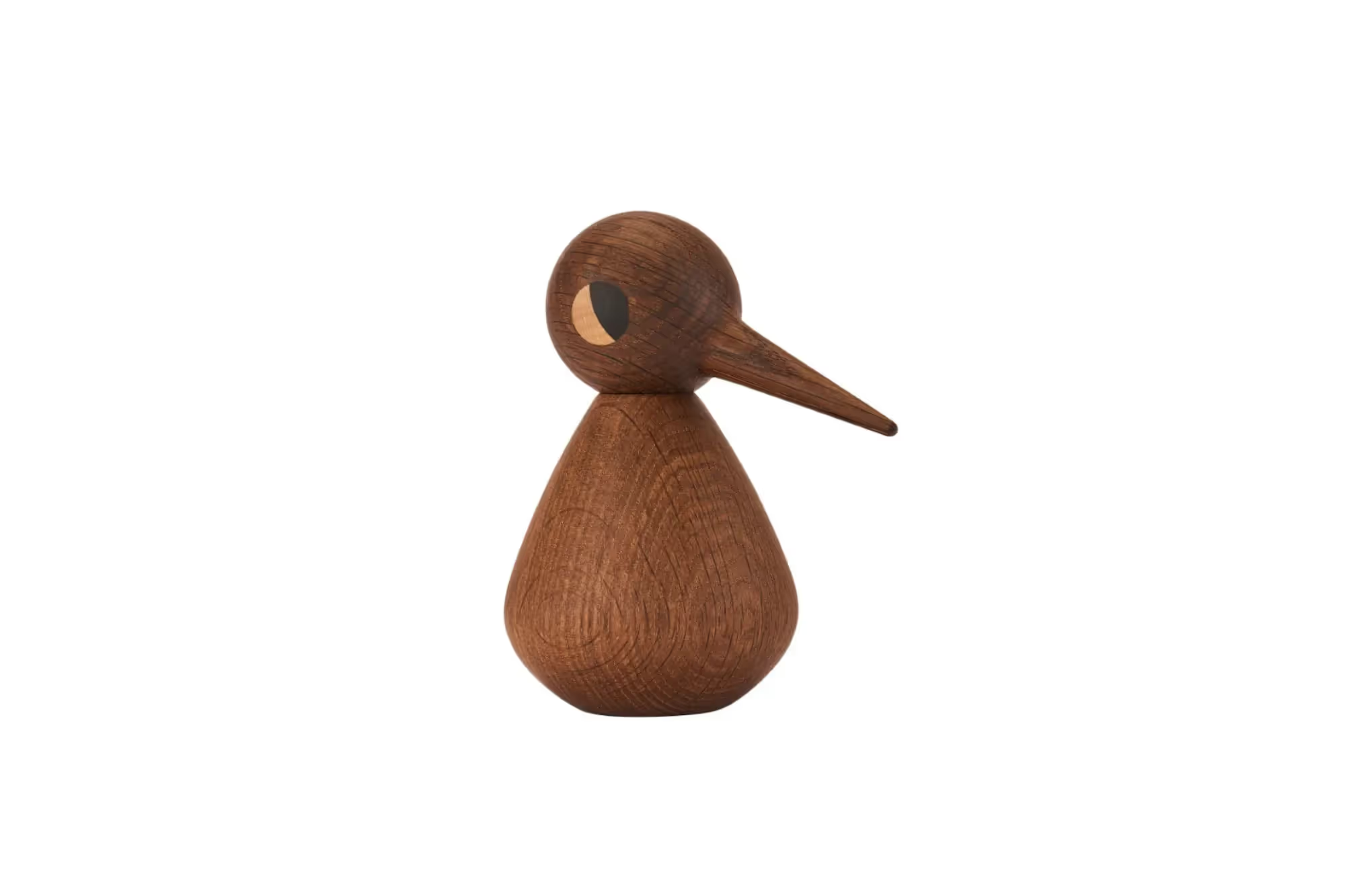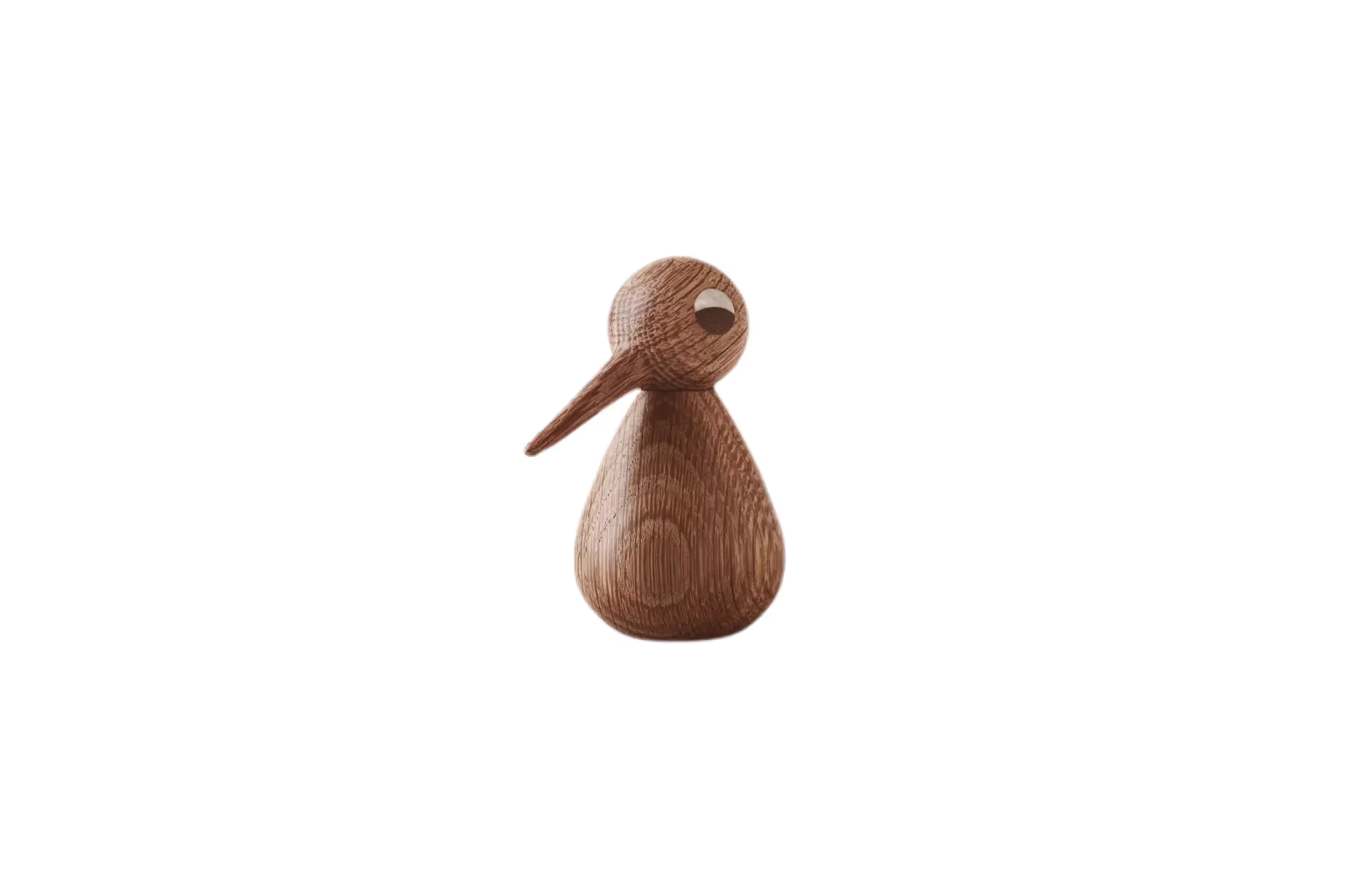Kristian Vedel
Point of view and empathy define the work of Kristian Vedel. Greatly influenced by Kaare Klint, the father of modern Danish furniture design, as well as the German Bauhaus school, his now-classic modern designs are characterised by a creative use of materials, especially plastics and wood, and with a strong sense for ergonomic and functional requirements.

An industrial designer must take a stand on what society needs, and on the possibilities and responsibilities of design.
Featured Designer
Kristian Vedel
Kristian Vedel 'Birds' by Architectmade

Designs by
Kristian Vedel
.avif)
From the Journal /
Kristian Vedel’s Birds Migrate to Good Form
Marking the centennary of Danish designer Kristian Vedel's birth, Architectmade has developed a unique way of celebrating his famous bird design. A group of over 100 wooden birds have been travelling the globe and occupying space in imaginative ways in every place they land, including our display at Good Form.
Meet the Designer /
Kristian Vedel
Kristian Solmer Vedel (1923–2003) was a Danish architect, industrial designer, and educator whose work bridged functionalism, humanism, and modern industrial production. Trained at the Royal Danish Academy of Fine Arts under Kaare Klint, Vedel developed a design philosophy rooted in clarity, material honesty, and deep respect for the user. He believed that design carried both social responsibility and aesthetic potential, famously stating that an industrial artist must take a stand on what society truly needs.
Vedel gained international recognition in the 1950s and 60s for his furniture and household objects, where he combined Scandinavian craftsmanship with modern industrial methods. His Modus furniture series embodied flexibility and modularity, while his iconic wooden Birds expressed warmth, playfulness, and sculptural simplicity. He also experimented with plastics at a time when the material was still new, pushing the boundaries of ergonomics and durability.
Equally committed to education, Vedel helped establish the Department of Industrial Design at the University of Nairobi in the 1960s, fostering cross-cultural dialogue and expanding the role of design in developing societies. His legacy lies in designs that remain timeless—functional, adaptable, and deeply human. Today, his work continues to symbolise the balance between responsibility, creativity, and modern living.

Modus Armchair, designed by Kristian Vedel for Søren Willadsen, 1963.


